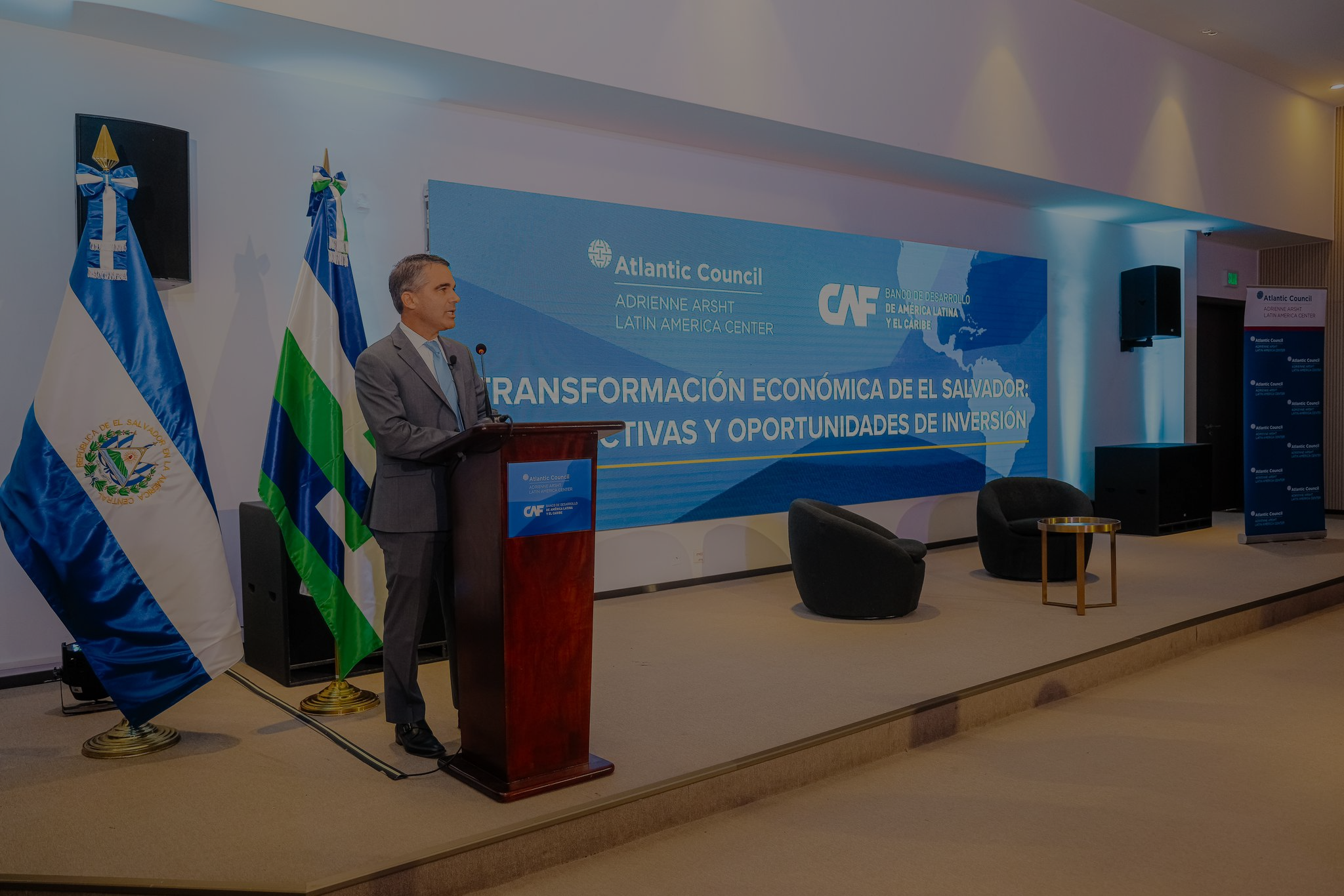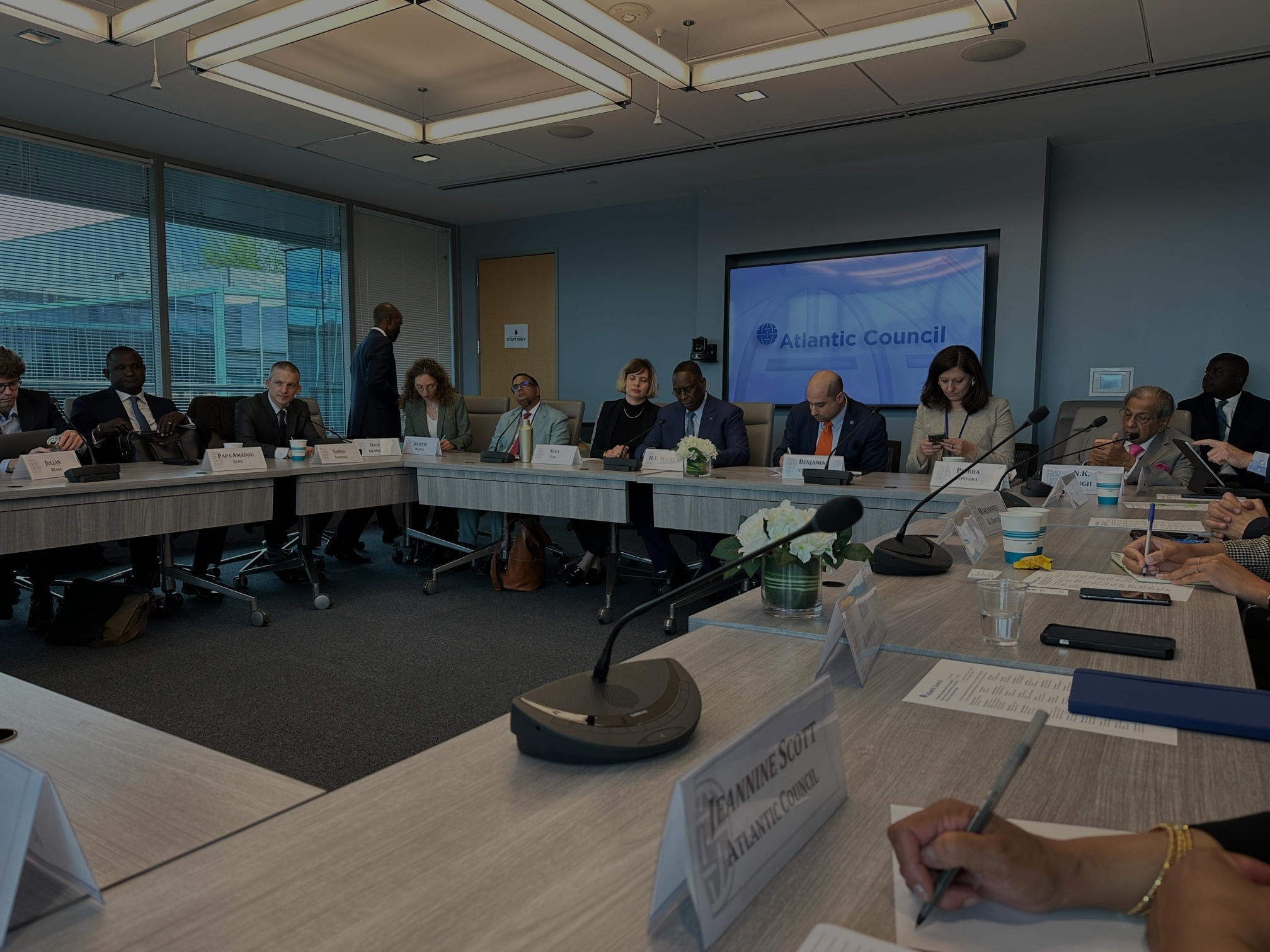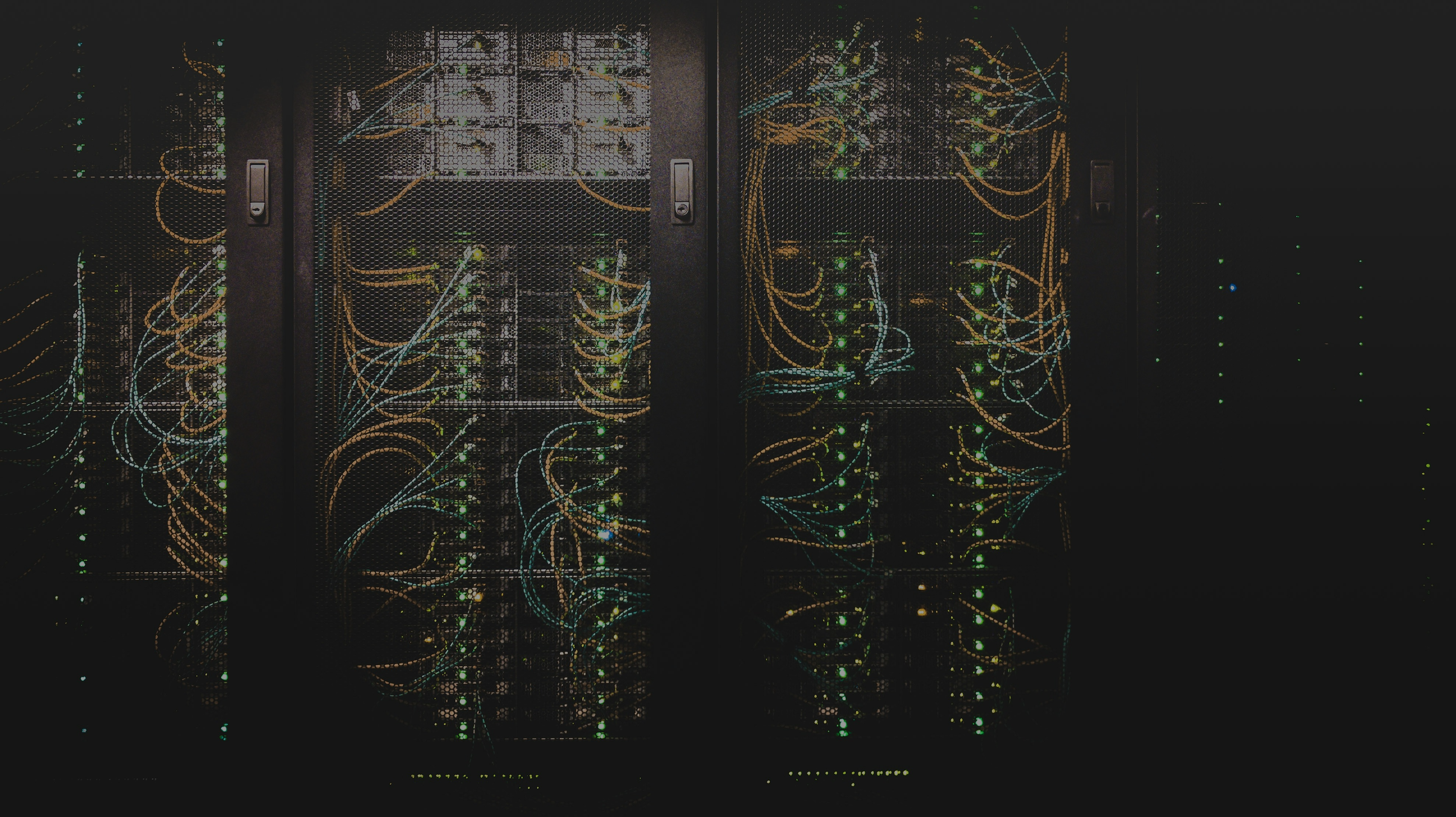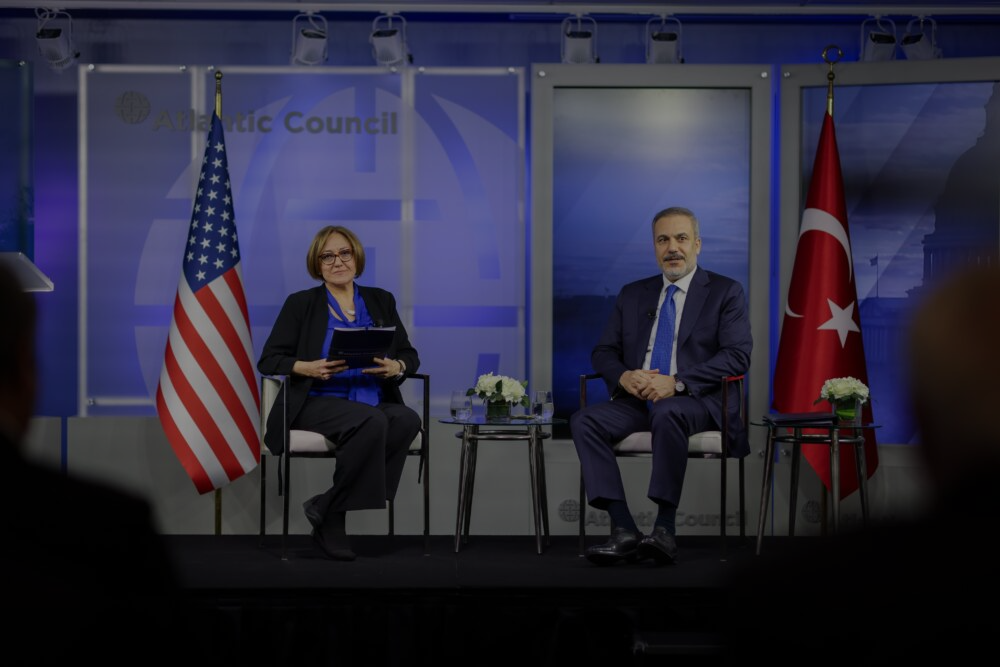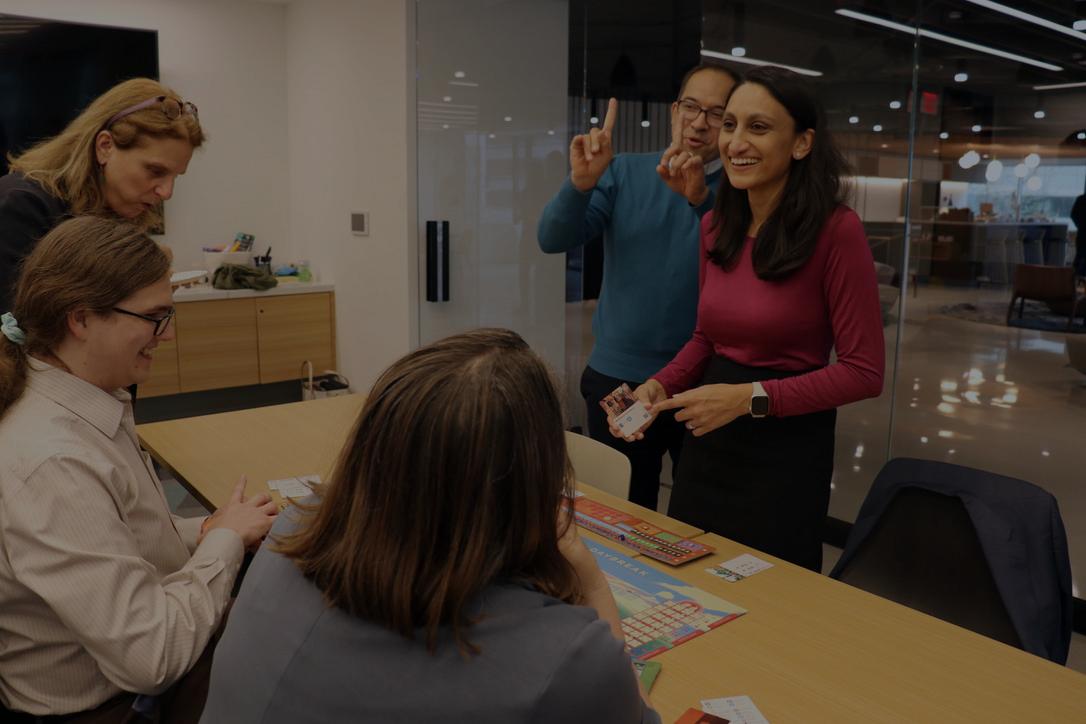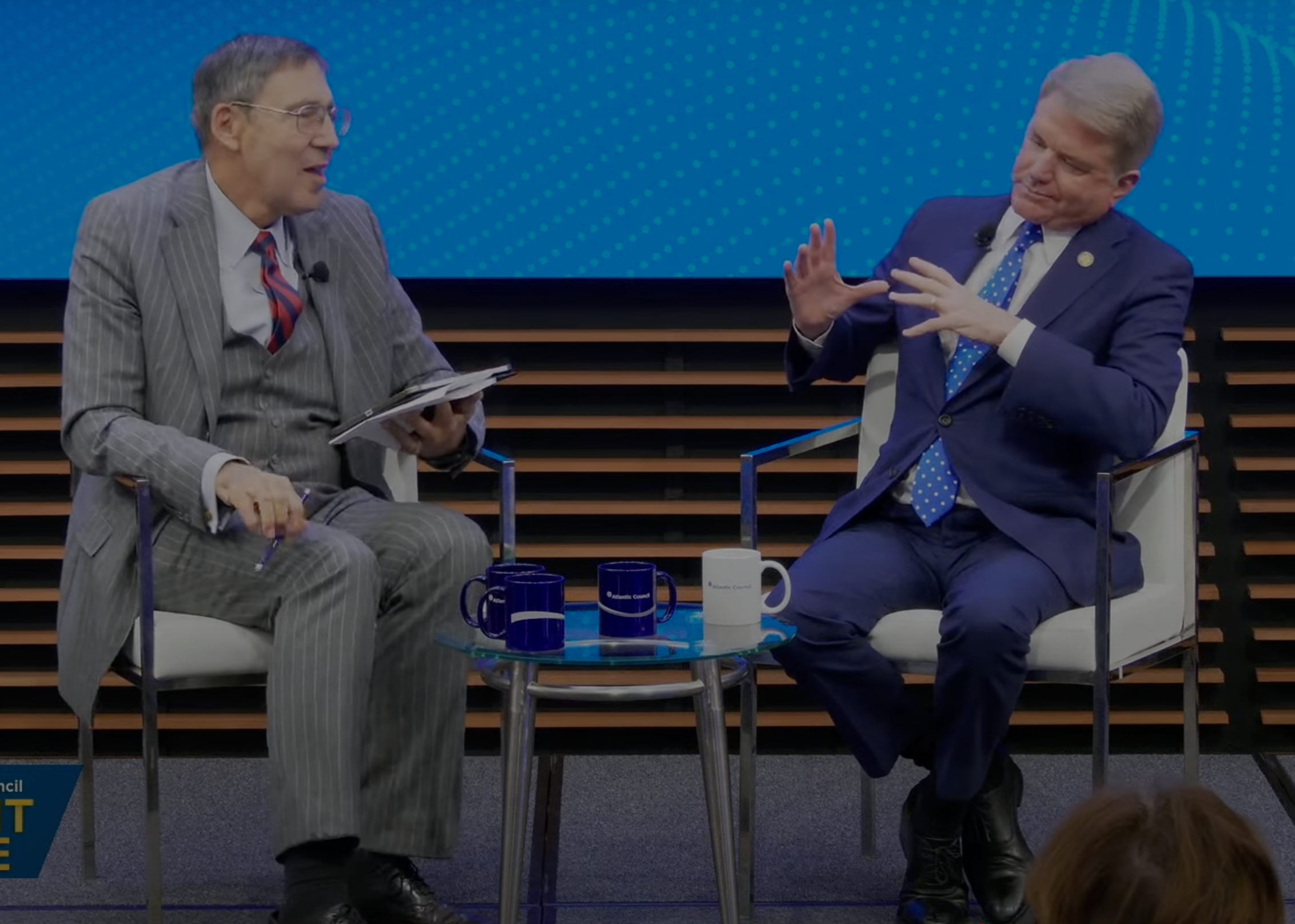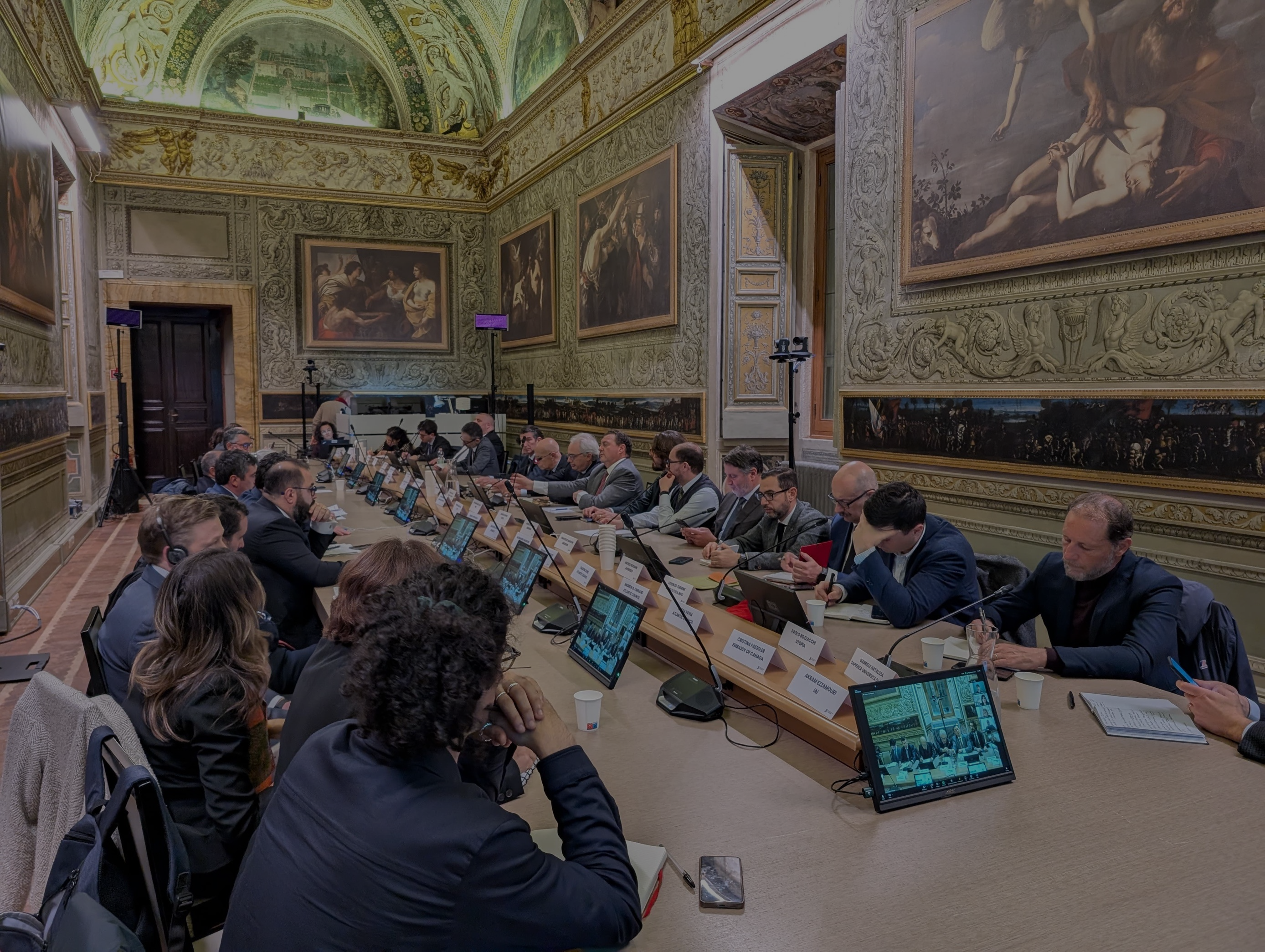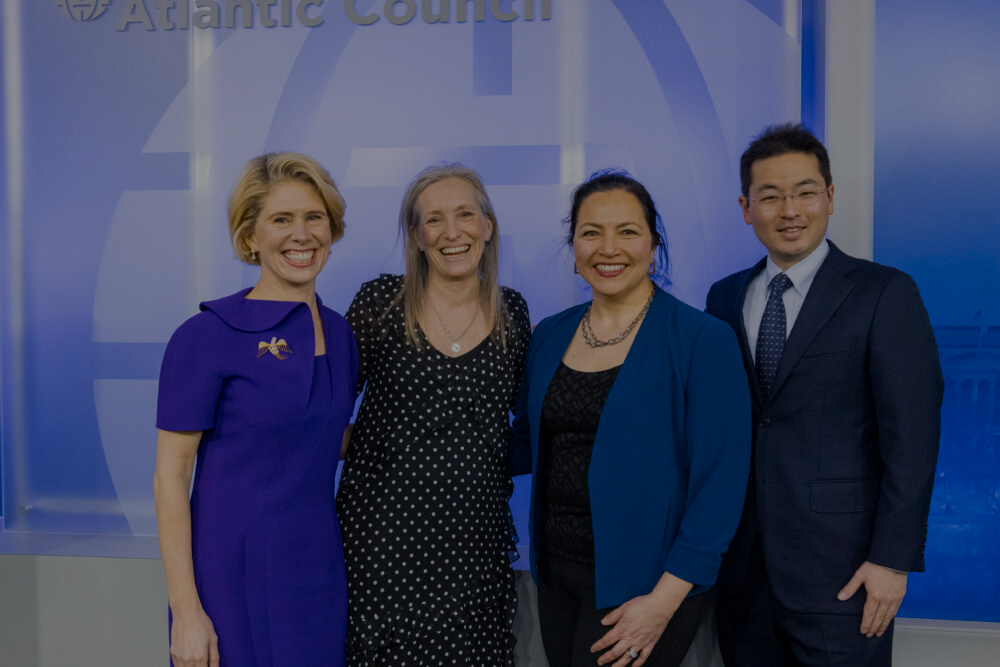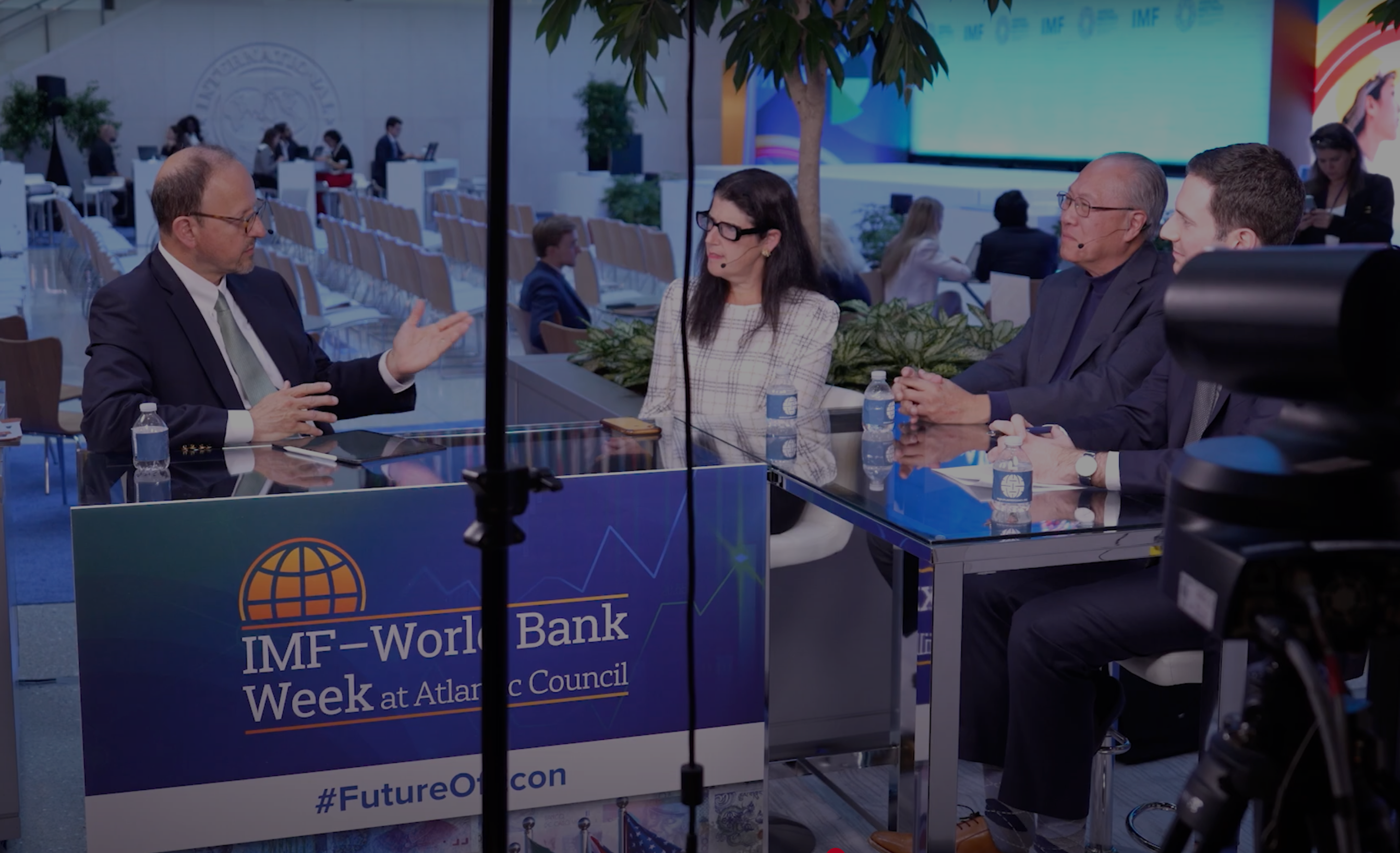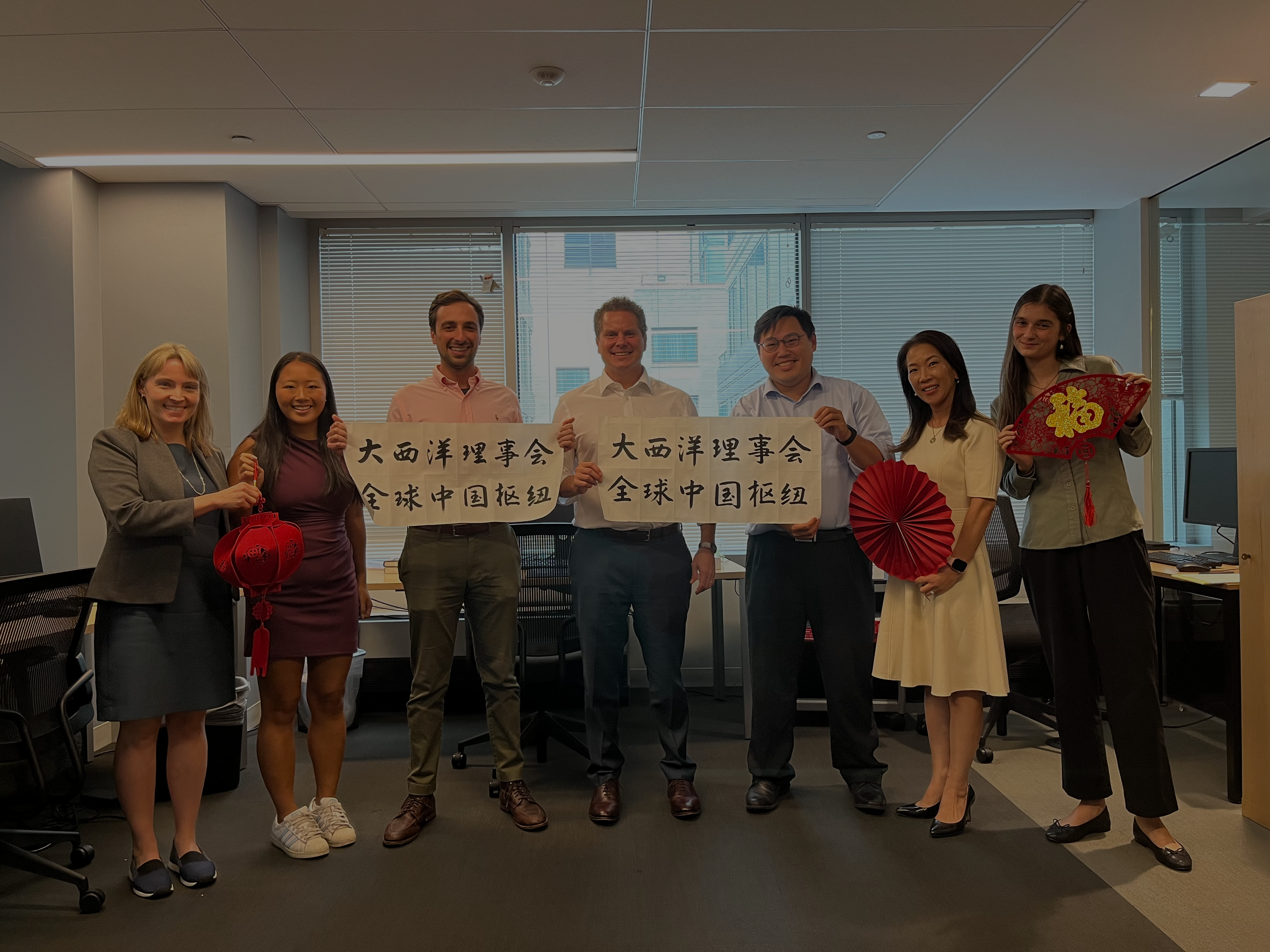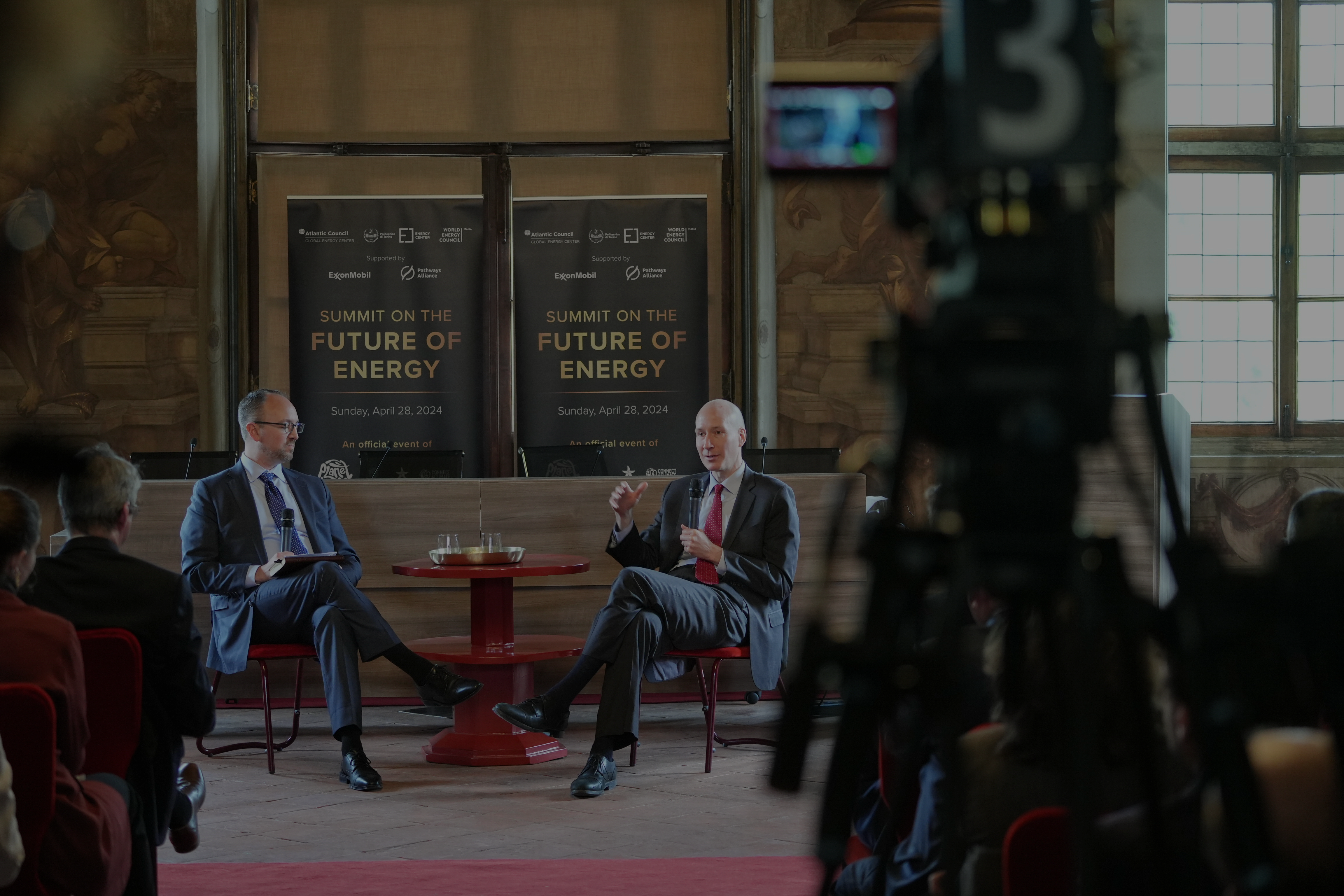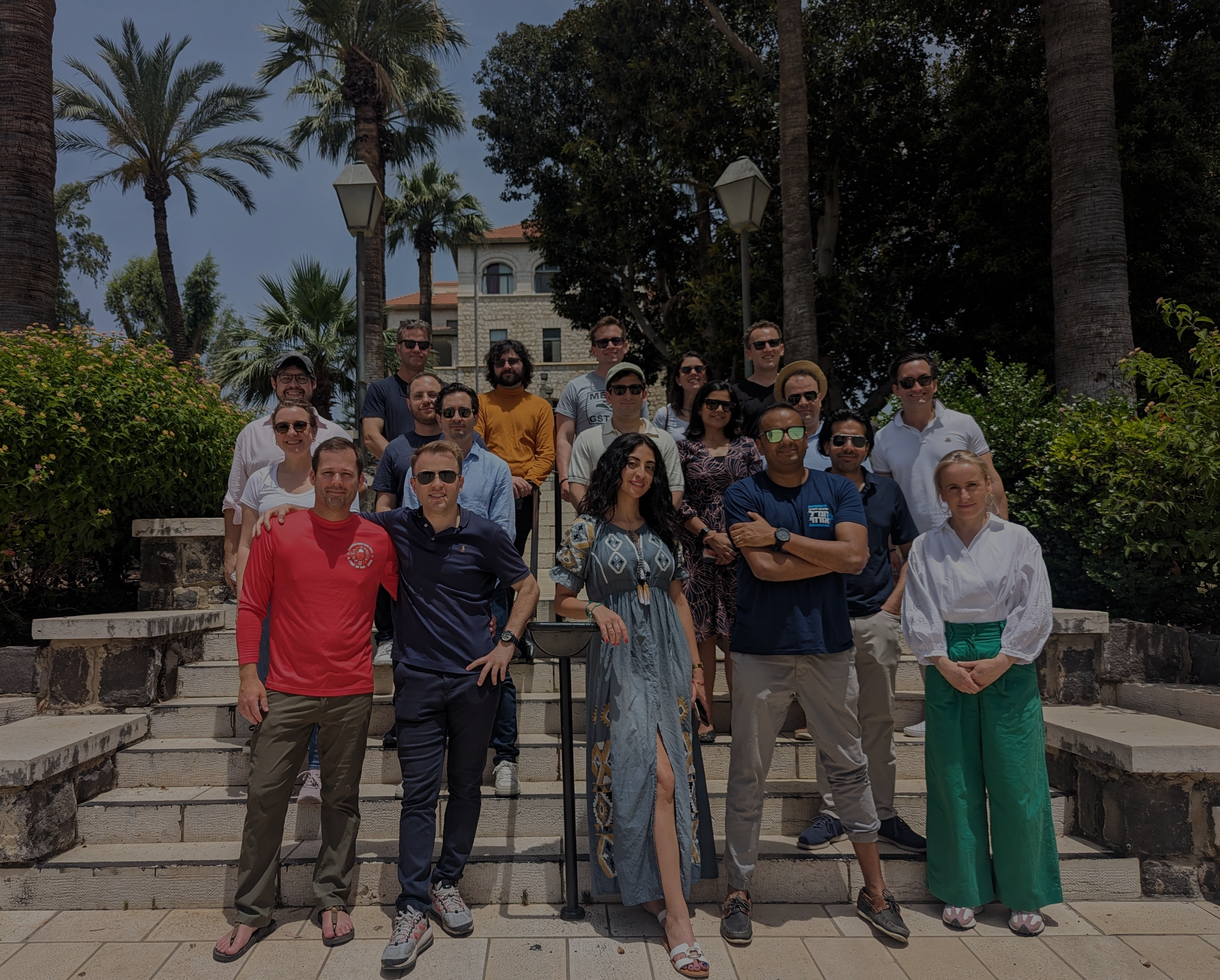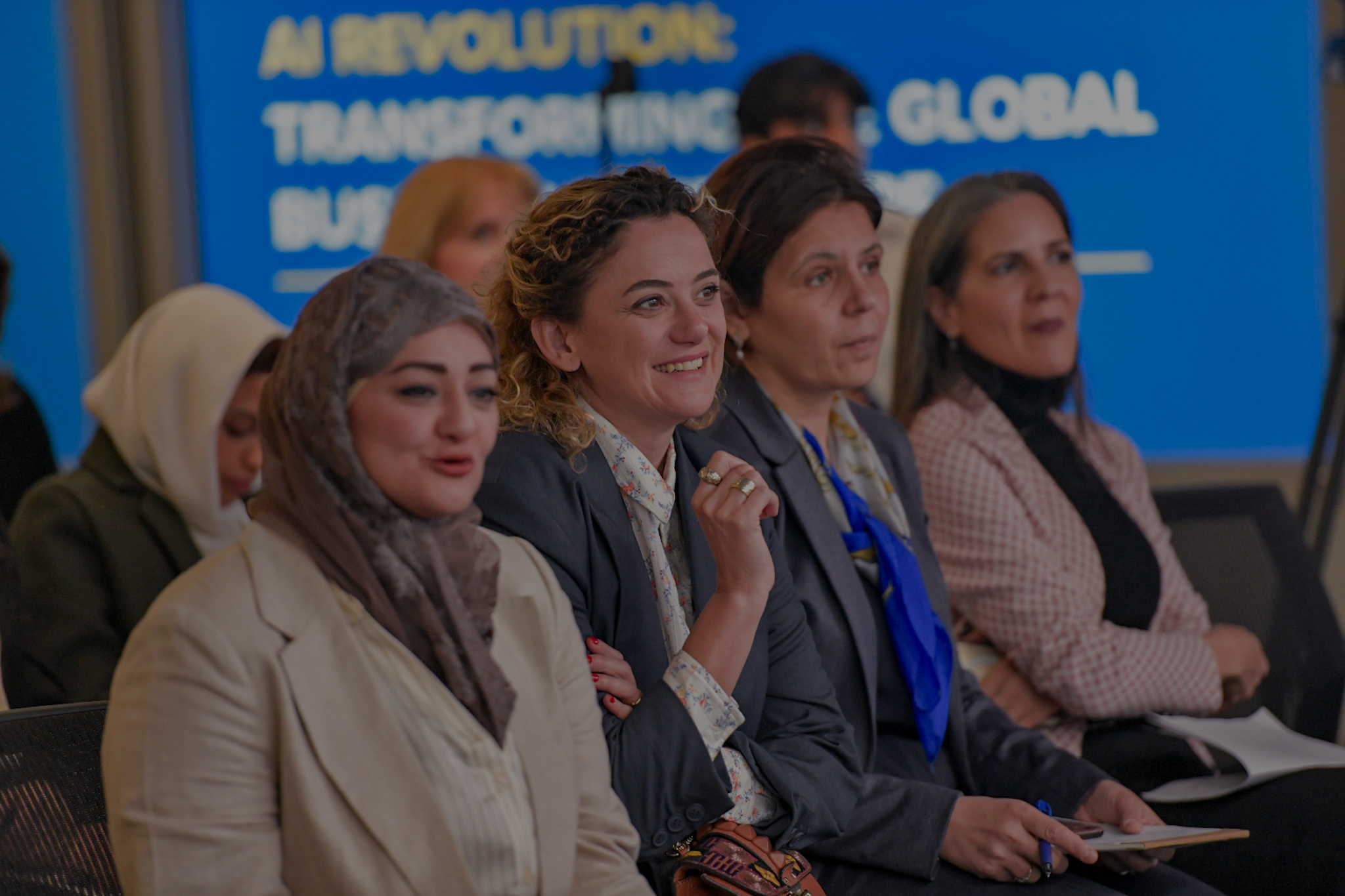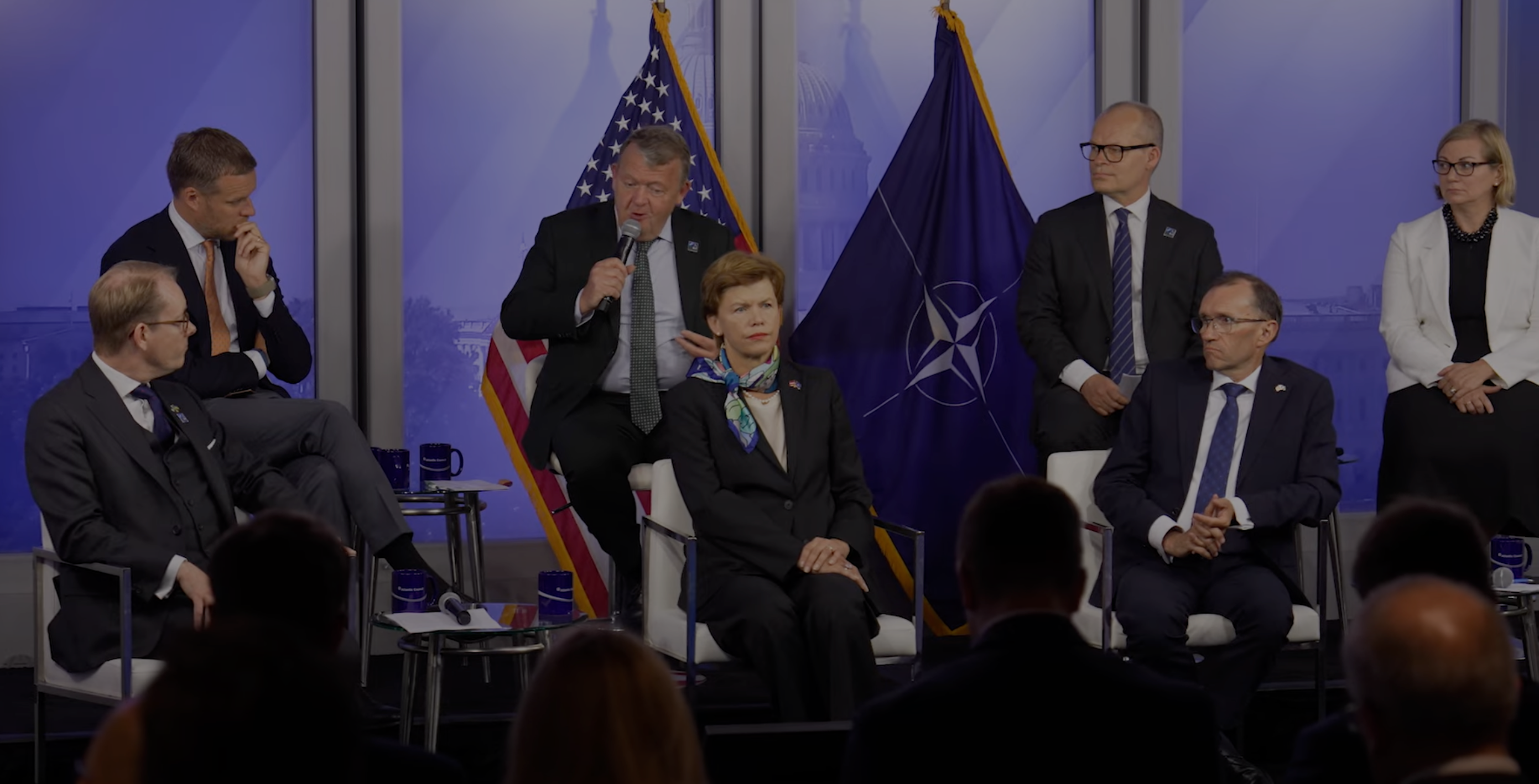Through the work they publish, the ideas they generate, the future leaders they develop, and the communities they build, the Atlantic Council’s programs and centers shape policy choices and strategies to create a more free, secure, and prosperous world.
The Atlantic Council’s Adrienne Arsht Latin America Center (AALAC) broadens understanding of regional transformations while demonstrating the significance of Latin America and the Caribbean in a rapidly changing world. The Center focuses on pressing political, economic, and strategic issues that define the region’s trajectory. The Center proposes constructive, results-oriented, nonpartisan solutions to inform public-sector, business, and multilateral action based on a shared vision for a more prosperous, inclusive, and sustainable future.
AALAC builds consensus for action in advancing innovative policy perspectives and prioritizes impact across geographic priorities—including Argentina, Brazil, Central America, Chile, Colombia, Mexico, and Venezuela, as well as through the Center’s Caribbean Initiative—alongside thematic areas that incorporate global Atlantic Council expertise: investment promotion, commercial ties, economic development, transnational criminal organizations, energy security, technology, democratic institutions, and mitigating Chinese influence.
In 2024, AALAC continued to shape regional discourse, drive policy impact, and strengthen US relations with Latin America and the Caribbean (LAC). Through its convenings across twelve countries and many top-tier publications, AALAC was at the forefront of defining regional events from Mexico’s election of its first female president to Brazil hosting the Group of Twenty (G20) summit and Venezuela’s Nicolás Maduro refusing to recognize his electoral loss, where the Center contributed to pre- and post-election international democracy efforts. AALAC’s laser focus on economics and investment meant that it took new strides through the Americas Economic Security Working Group to unlock challenges that have resulted in LAC facing one of the world’s slowest rates of economic growth. The Center’s bipartisan-backed strategy for supply chain diversification was one result of that effort.
At a time of growing threats posed by external actors, AALAC worked with the Scowcroft Center for Strategy and Security to outline two highly visible strategies: one to accelerate US-LAC collaboration on democracy, economics, energy, and migration, and another to counter malign Russian and Chinese influence. By working across political parties, the Center ensured that its recommendations focused on strategy beyond electoral cycles. AALAC supported democratic stability after the transition to President Bernardo Arévalo in Guatemala, becoming the first international organization to host a major public-private event with the new administration in the capital city. The Caribbean Initiative, meanwhile, launched a task force to enhance regional disaster preparedness and sustainability. And recognizing the need for sustained US regional leadership, AALAC worked alongside the US State Department to commemorate the thirtieth anniversary of the Summit of the Americas, engaging past host cities such as Santiago, Panama City, and Port of Spain on the benefits that come with a hemisphere-wide approach, when possible, to deal with common challenges.
The Africa Center shines a spotlight on the issues, countries, and individuals that will shape the “African century,” with the aim of strengthening security and expanding prosperity on the continent.
Through initiatives that include launching a one-of-a-kind African Critical Minerals Task Force in Cape Town at the Mining Indaba conference, sitting down with the minister of finance of South Africa to discuss the BRICS grouping of emerging economies at the International Monetary Fund-World Bank Spring Meetings, hosting two African presidents (Ghana and Kenya) at the Global Citizen Awards, focusing on the economic and social opportunities of the African creative industries, and organizing a “DRC Day” to highlight investment opportunities in the Democratic Republic of the Congo, the Africa Center has been placing the opportunity of Africa at the forefront of US policy discussions.
The Atlantic Council Technology Programs (ACtech) work together to address the geopolitical implications of technology and provide policymakers and global stakeholders necessary research, insights, and convenings to address the challenges of global technology and ensure its responsible advancement.
The core of ACtech’s approach is technical research that provides real evidence, examples, and granularity to inform policy, matched with the ability to build and convene communities of action. We have an opportunity as an organization—and the responsibility as a society—to come together and innovate in big, new, ambitious ways, as well as proactively ensure technology is harnessed for the greatest amount of good for generations to come.
At the Distinguished Leadership Awards in May 2024, the Atlantic Council announced the creation of Atlantic Council Technology Programs, bringing together five leading centers and initiatives: the Digital Forensic Research Lab (DFRLab), the GeoTech Center, the Cyber Statecraft Initiative, the Democracy + Tech Initiative, and a newly formed Capacity Building Initiative.
The Council’s technology work is informed by three global trends: accelerating geopolitical competition between political systems, renewed globalization and increasing interdependence between various actors, and rapid technological change set against the backdrop of finite resources. Authoritarian states such as China and Russia aim to dominate foundational technologies to maintain absolute control at home and export their repressive model abroad. This approach is designed to undermine a free, open, secure, and interoperable global technology ecosystem, and it stands in stark contrast with actualizing the potential of technology to benefit all of humanity. The world requires a connective strategy that realizes the strength of collaboration and open systems, involves stakeholders and partners, and links how technology is designed, funded, powered, and governed.
Beyond building ACtech, in 2024 the programs continued first-in-class research on topics such as countering digital authoritarianism, spyware, foreign malign influence, and the impact of generative artificial intelligence (AI) on the information environment; capacity building on AI policy around the world, cyber policy, and open source research; and policy coordination on internet governance and government use of AI. ACtech also hosted launch events for major tech strategies, including the US national cyber strategy, the first-ever US international cyber and digital policy strategy, and the national cyber workforce strategy.
The Atlantic Council Turkey Program aims to support transatlantic relations by strengthening dialogue between the United States and regional NATO allies, primarily Turkey. In line with the Atlantic Council’s mission of promoting constructive US leadership and engagement in international affairs and in facing global challenges, the Turkey Program—which includes Atlantic Council in Turkey—works to bolster transatlantic engagement with Turkey and its surrounding region through forward-looking research and high-impact, high-level convenings covering energy, economics, business, technology, defense, and security.
In 2024, the Atlantic Council Turkey Program advanced its mission to strengthen transatlantic engagement and dialogue with the region with high-level convenings and commentary covering the most important facets of the US-Turkey relationship. In Istanbul, the program hosted the flagship Atlantic Council Regional Conference on Clean and Secure Energy, which gathered officials and industry leaders from the United States, European Union, Turkey, and beyond to discuss cooperation in the clean energy transition and energy security in the context of a changing geopolitical landscape. As Russia’s war in Ukraine rages on, the program analyzed the future of the Black Sea and Turkey’s central role in maritime security, defense, and energy. Against the backdrop of increasing great power competition and emphasis on hard power concerns, the program published two editions of the Defense Journal by Atlantic Council in Turkey and held an event on the sidelines of the NATO Summit to explore the importance of cross-Alliance defense sector cooperation and coordination to address emerging security challenges.
The Atlantic Council’s Climate Resilience Center (formerly the Arsht-Rock Resilience Center) creates and delivers transformative solutions that improve lives, protect livelihoods, and expand opportunity for communities on the front lines of the climate crisis. The Center is committed to reaching one billion people around the world with resilience solutions to climate change by 2030.
To better protect people from the dangers of the climate crisis, the Climate Resilience Center advanced critical and impactful solutions throughout 2024. From ongoing work with its network of Chief Heat Officers to its ongoing discourse with private financial sector stakeholders, the Center continued to lead in innovative approaches to resilience and adaptation.
Last year, the Center also expanded its climate games portfolio by launching two games that teach heat resilience for Minecraft. The game and curriculum are accessible on Minecraft Education, which has over 100,000 registered teachers and 166 million monthly active players worldwide
The Center also drove global discourse with publications, including a report that considers effective ways to scale private finance for climate adaptation and another that shares case studies of financial tools and mechanisms for nature-based solutions. The Center’s senior director, Jorge Gastelumendi, also co-authored a policy guide for the T20 process, a gathering of think tanks that runs in parallel to the G20 summit. For the fourth year in a row, the Center also served as a managing partner of the COP Resilience Hub. It has already kicked off its path to COP30 campaign as the world looks to Belém, Brazil for the next United Nations climate summit.
The Eurasia Center’s mission is to promote policies that encourage stability, democratic values, and prosperity in Eurasia. A democratic, prosperous, and stable Eurasia is a core interest for the United States and plays into the Atlantic Council’s focus on great power competition.
In 2024, the Eurasia Center drove the conversation in Washington on a stronger US policy to support Ukraine against Russia’s invasion, and to contain Kremlin aggression and malign influence more broadly. Led by former US Ambassador to Ukraine John Herbst, the Eurasia Center consistently highlighted the need to safeguard US national security by continuing major Western support for Ukraine’s defense and remained active in outlining possible avenues towards a durable and fair end to the war.
At the start of the year, the Eurasia Center convened nine think tanks for a conference at the US Capitol to develop a new US strategy for Russia. The Center then launched its Russia Tomorrow report series to deliver insight and policy recommendations from leading experts to reevaluate Western conceptions of Russia today and how to best prepare for its future tomorrow. Russia Tomorrow has become one of the Council’s most popular publications and a catalyst for building a stronger, smarter US approach to Russia.
The Center’s flagship UkraineAlert section notched 1.9 million reads in 2024, continuing its reputation as a source for timely analysis on Ukraine. Throughout the year, the Eurasia Center worked with Emmy-winning directors and producers to develop its first-ever documentary, Putin’s endgame: The stakes beyond Ukraine. The film, which debuted in January 2025, explores the Kremlin threat to transatlantic security—especially if Russian President Vladimir Putin achieves his aims in Ukraine, either on the battlefield or via a bad peace deal—with on-the-ground interviews with national security officials, military personnel, and ordinary citizens from Sweden, Finland, Estonia, and the United Kingdom.
The Eurasia Center’s flagship Eurasia Congressional Fellowship for congressional staffers resumed its capstone trip to Kyiv, Ukraine for the first time since 2019. In Ukraine and Poland, staffers engaged with high-level officials and learned more about the impact of the war in the region and beyond.
In December, the Eurasia Center and the Europe Center spearheaded an expert symposium with the University of Michigan to develop recommendations for the Trump administration on how the United States and Europe can best bring about a winning strategy to end the Russian war and ensure a secure and prosperous peace for Ukraine.
Beyond Ukraine and Russia, the Eurasia Center hosted high-level officials from Armenia, Georgia, the democratic opposition in Belarus, Kazakhstan, Moldova, and Uzbekistan to discuss recent developments in their respective countries, encourage freedom and prosperity at home, and chart pathways towards stronger relations with the United States.
The Europe Center works to inform and impact the policies, actions, and strategies of transatlantic decisionmakers on the issues that will shape the future of the transatlantic relationship. The Center’s convening power and network combine with its extensive research and real-time analysis to promote dialogue, build a forward-looking agenda for the transatlantic partnership, and find solutions to the geopolitical, economic, and technological challenges facing the United States and its European allies. With over a dozen workstreams covering key transatlantic, regional, and bilateral issues, the Europe Center makes the case for the transatlantic partnership as an important strategic asset for the United States and Europe alike.
2024 was a critical year for the transatlantic relationship. Elections across the Atlantic meant changes in leadership for over 785 million people at a moment when the future direction of the transatlantic partnership is increasingly in question. The Europe Center met this challenge head on. With its mix of thought leadership and convening power, the Center used the year of transition to chart a productive agenda for the transatlantic partnership. The Center hosted more than two hundred events in twenty countries, authored over one hundred reports and commentaries, and was cited in more than one hundred different media outlets.
To help shape this year of transition and unpack key issues confronting the alliance, the Center launched the Transatlantic Horizons series. With dozens of policy briefs, public and private convenings, and a capstone report setting out a roadmap for cooperation, the series outlined a productive vision for US-European relations with practical recommendations for policymakers to hit the ground running in 2025.
Beyond this cross-cutting new series, the Transatlantic Digital Marketplace Initiative published reports on the shifting geopolitics of international and transatlantic data flows. The Balkans Forward Initiative convened trust-building track two formats and elevated the profile of the region for the transatlantic audience. The Northern Europe Office informed the debate around Sweden’s and Finland’s changing security perceptions with their entry into NATO. The Warsaw Office maintained the Center’s forward presence on Europe’s eastern flank, serving as a hub to the wider region for US experts and regularly convening European officials. The Center also bolstered the US-Central European partnership through flagship event series such as Central Europe Week, Warsaw Week, and an Atlantic Council Front Page event in Houston, Texas featuring Czech President Petr Pavel.
The Freedom and Prosperity Center aims to increase the well-being of people everywhere, and especially the poor and marginalized in developing countries, through unbiased, data-based research on the relationship between prosperity and economic, political, and legal freedoms, in support of sound policy choices.
During 2024, the Center published the 2024 Atlas: Freedom and prosperity around the world, launched the 2024 Freedom and Prosperity Indexes alongside The path to prosperity: The 2024 Freedom and Prosperity Indexes, hosted the inaugural Religious freedom and integral human development: A new global platform conference in Rome, and launched the Women for Prosperity project in Zimbabwe alongside a report entitled How Zimbabwe can achieve its vision of prosperity. Throughout the year, the Center organized convenings and published articles advancing our four core pillars: the Freedom and Prosperity Indexes, freedom and democracy, prosperity in emerging markets, and human flourishing. We also introduced the State of the Parties report series on the role of political parties in creating democratic stability.
The GeoEconomics Center develops data-driven programs, publications, and thought leadership at the nexus of economics, finance, and foreign policy. The Center aims to bridge the divide between these oft-siloed sectors with the goal of helping shape a more resilient global economy. Our work is built on the idea that the United States must lead with allies or risk becoming a bystander in a reshaped international financial system. The Center is organized around three pillars—the Future of Capitalism, the Future of Money, and the Economic Statecraft Initiative.
The GeoEconomics Center and its Economic Statecraft Initiative were a hub of cutting-edge analysis, global convening, and policymaking in 2024. The Center’s interactive data visualizations, international conferences, and world-class research shaped the field from digital currencies to sanctions, from the effects of China’s economic slowdown to Russia’s blocked reserves.
The Center played a key role in helping the Group of Seven (G7) overcome hurdles and deliver fifty billion dollars to Ukraine in late 2024 as part of a compromise plan to leverage interest on immobilized Russian assets. The Economic Statecraft Initiative coined the term “axis of evasion,” which is now being used across Washington and beyond, and led the third Transatlantic Forum on GeoEconomics, which featured private and public sector leaders from both sides of the Atlantic including Nasdaq CEO Adena Friedman, US Deputy Attorney General Lisa Monaco, and US Ambassador to China Nicholas Burns.
The Center’s work has impacted real policy decisions, from the establishment of a cross-border payment pilot project among G7 allies led by the New York Fed, to the Bretton Woods Institutions reviewing the way they assess China’s economy, to financial leaders assessing the economic risk of a future conflict in the Taiwan Strait.
In 2024 the GeoEconomics Center became the place to be for the world’s economic policymakers. The Center hosted US Trade Representative Katherine Tai, US Commerce Secretary Gina Raimondo, European Central Bank President Christine Lagarde, and International Monetary Fund (IMF) Managing Director Kristalina Georgieva. The Center’s work made the Atlantic Council the only think tank cited on the US House floor by members of both parties during the debate over central bank digital currencies (CBDC), and the CBDC tracker continues to be the most viewed webpage at the Atlantic Council.
Throughout the year, the GeoEconomics Center worked with centers across the Council to host over forty finance ministers and central bank governors—more than 30 percent of the world’s total—during IMF-World Bank week programming, and became the only think tank to do live events from inside the IMF. The Center also launched a new project on the future of the G20 by marking Brazil’s presidency with events in Rio de Janeiro co-hosted with the Adrienne Arsht Latin America Center.
The Global China Hub tracks Beijing’s actions and their global impacts, leveraging its network of China experts around the world to generate actionable recommendations for policymakers in Washington and beyond.
In 2024, the China Hub led robust programming on China’s global influence efforts, US-China technology competition, and Taiwan Strait tensions. The Hub published a comprehensive Taiwan election series that featured on-the-ground reporting from its fellows in Taipei. The team hosted a conference on US-China rivalry in the Global South, which brought Latin American and African voices into Washington’s China policy conversation. On the ground in Latin America, the Hub trained a group of Latin American journalists to serve as China watchers, equipping them with the knowledge and tools to directly counter Beijing’s disinformation activities across the region.
The China Hub published three particularly high-impact reports in 2024. One analyzed China’s shifting nuclear doctrine in potential crisis scenarios and called attention to the growing risk that a future Taiwan Strait crisis could escalate into a nuclear conflict. Another report mapped China’s cyber training programs, using open-source information on China’s “capture the flag” hacking competitions to better understand Beijing’s growing offensive cyber capabilities. The third report utilized a large Chinese Ministry of Commerce database of state-sponsored training programs for developing nations to assess how Beijing uses those programs to promote authoritarianism and how Washington should respond.
The Global Energy Center develops and promotes pragmatic and nonpartisan policy solutions designed to advance global energy security, enhance economic opportunity, and accelerate pathways to net-zero emissions.
In 2024, the Global Energy Center navigated the rapidly changing energy and climate architecture, as elections across the world led to a political shift to the right and a greater emphasis on national security and economic competitiveness, at times upstaging long-term sustainability and climate goals. Amid this pivot, the Center’s efforts yielded a cross-center report, based in part on more than thirty meetings in Kyiv with officials and other key stakeholders, on rebuilding Ukraine’s economy and strengthening energy security, even as it continues to fight against Russian aggression; this report complemented the Center’s work on the future of Russian energy supplies’ influence in Europe.
The Center also launched a new report series on the opportunities for energy cooperation across North America to bolster energy security, advance the energy transition, and maximize economic competitiveness by harmonizing priorities across borders. Additionally, the Center led the 2024 Frontiers Project Meeting addressing Utah’s tremendous potential as a first-mover state into advanced nuclear energy technologies to help secure US leadership in meeting global demand for low-emissions production and manufacturing. Capping the year was the Center’s engagement at the COP29 climate conference, featuring high-level discussions on pragmatic solutions to both lower emissions and secure energy systems.
For more than sixty years, the Atlantic Council has convened global leaders to address the world’s most pressing challenges. As a central pillar of this legacy, the Millennium Leadership Program (MLP) aims to connect and empower next-generation international changemakers who will shape the twenty-first century. Currently, MLP comprises the Millennium Fellowship, the Millennium Leadership Intensive, the European Leadership Accelerator, and the Young Global Professionals Program. Through its programs, global professionals sharpen their leadership abilities, increase their capacity for meaningful impact, and build unique communities.
In 2024, the MLP team introduced a new leadership program, hosted its first large-scale alumni summit, and brought eighteen young global leaders on a study tour to Israel and the Palestinian territories. As part of the Millennium Leadership Intensive, participants were immersed in a week of focused learning and dialogue in the Middle East, where they pushed their understanding of the region’s complexities and the challenges of effective leadership in a tumultuous time.
The Millennium Summit, which took place across multiple venues in Connecticut, was an important milestone for the Millennium Leadership Program. For the first time, former and current fellows were able to connect in-person on a grand scale. Participants were joined by former Governor Jon Huntsman and Jordan Brugg, the CEO of Spencer Stuart, alongside the Atlantic Council’s Frederick Kempe and Jenna Ben-Yehuda.
As the Middle East and North Africa (MENA) region continues to undergo significant political and socioeconomic changes, the Rafik Hariri Center and Middle East Programs are leading the way in providing a forum for informing and galvanizing the transatlantic community to shape a stable and prosperous region. The Center has been at the vanguard of MENA current affairs, policies, and shifts for more than a decade. Its team works in, with, and on the MENA region, amplifying regional voices and connecting regional stakeholders to their counterparts in the United States and Europe. The mission is to promote peace and security, and unlock the region’s economic and human potential through the ideas the Center publishes, the solutions it generates, and the communities it influences.
2024 was another fast-paced year in the Middle East, which saw continued conflicts, revolutions, cease-fires, cultural touchpoints, and major geopolitical shifts. The year began with the Israel-Hamas war reaching its apex and was capped by the collapse of the Assad regime in Syria. With Iran’s proxy network at the center of much of the region’s conflict in 2024, the Center’s Scowcroft Middle East Security Initiative published an in-depth report and spearheaded a conversation in Washington about what the new administration’s policy should be toward Iran. Similarly, Middle East Programs maintains the only dedicated Syria program in Washington, which was well positioned to respond to the fall of the Assad regime, convening diverse voices in Syria, engaging with US and European decision makers, and engineering a holistic policy for the future of Syria.
The Middle East Programs continued to unlock the human potential of the region. The Strategic Litigation Project team expanded critical human rights work codifying gender apartheid. The WIn Fellowship—an executive leadership program for women entrepreneurs—concluded its third iteration with over seventy fellows from Saudi Arabia, the United Arab Emirates, and Jordan. The Middle East Programs also continued to be a hub for US decision makers and regional stakeholders to convene for thoughtful conversations during tumultuous times, with high-level speakers including Qatari Prime Minister Mohammed bin Abdulrahman bin Jassim Al-Thani, Iraqi Prime Minister Mohammed Shia’ Al-Sudani, and Egyptian Foreign Minister Badr Abdelatty.
The Scowcroft Center for Strategy and Security works to develop sustainable, nonpartisan strategies to address the most important security challenges facing the United States and its allies and partners. The Center honors the legacy of service of General Brent Scowcroft, including his ethos of nonpartisan commitment to the cause of security, support for US leadership in cooperation with allies and partners, and dedication to the mentorship of the next generation of leaders.
The world is at a historic inflection point, and the Scowcroft Center is working alongside US and allied governments to shape official strategies and policies and to inform the public debate in the Center’s core competencies of strategy, alliances, national security resilience, and defense.
The Center’s strategy and foresight work continued to receive global recognition, including through the annual Global Foresight report, new papers in the Atlantic Council Strategy Papers Series, and continued success of the ACTV series So What’s the Strategy?, which is the query the late General Brent Scowcroft would pose to colleagues while working as national security advisor. The Center was also an official partner at the seventy-fifth NATO Summit and influenced US and allied policy around the summit, as well as the public debate on major issues, such as the war in Ukraine and NATO defense plans and capabilities.
Scowcroft’s Indo-Pacific security team worked to strengthen US alliances in the region through critical work on deterrence, war-gaming, and deepening partnerships with Japan, South Korea, Taiwan, and other allies and partners in the region. In collaboration with Atlantic Council Executive Vice Chair Adrienne Arsht, the Center’s “Reporters at Risk” series helped in the fight to free Wall Street Journal reporter Evan Gershkovich from Russian imprisonment following his 2023 arrest on false charges of espionage. Finally, the Center continued to lead on issues of strategic deterrence and helped to persuade the Department of Defense to bolster its nuclear forces in the face of growing Chinese and Russian nuclear threats, in addition to ongoing efforts related to software-defined warfare and revitalizing the US and European defense industries.
The South Asia Center (SAC) is the focal point for the Atlantic Council’s analysis of issues concerning the political, social, geographical, and cultural diversity of the region. At the intersection of South Asia and its geopolitics, SAC facilitates constructive dialogue to shape policy and forge ties between the region and the global community by producing cutting-edge analysis, convening key stakeholders, and amplifying policy conversations.
In 2024, the South Asia Center—the Atlantic Council’s first regional center—began pivoting to a new outlook on the region.
An Atlantic Council delegation comprising Executive Vice President Jenna Ben-Yehuda and multiple senior directors visited India for the Raisina Dialogue, setting out the Council’s changing vision. SAC covered the elections in Bangladesh, Pakistan, and India with its range of experts through events and publications. It hosted the finance ministers of Pakistan and Bangladesh as part of the GeoEconomics Center’s spring IMF-World Bank week programming. The Center helped bring in the finance advisor from Bangladesh’s interim government for the fall IMF-World Bank week programming.
In addition, SAC led on programming regarding digital public infrastructure and data privacy in South Asia, and launched an immersive project exploring the Taliban’s oppressive decrees against women in present-day Afghanistan.
In 2024, SAC also began restructuring. South Asia Center’s work on women in Afghanistan was moved into the Strategic Litigation Project to strengthen that team’s wider work on gender apartheid. The Afghanistan and Pakistan regional and political economic work was moved into the Scowcroft Middle East Security Initiative to expand the Middle East Programs’ regional work while enabling SAC experts to utilize the support structure of the Council’s largest regional program. Meanwhile, SAC created an independent pillar for its work in Bangladesh.

